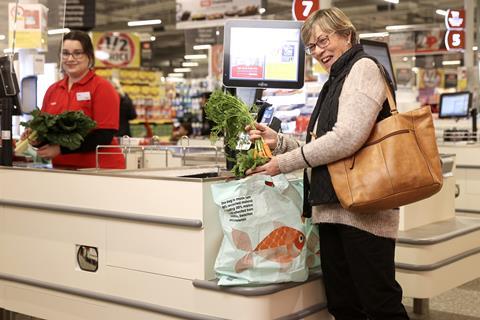Australian retailer will recycle plastic recovered from Malaysian waterways to make shopping bags

Coles has announced it will start using plastic marine waste to make shopping bags as part of its Together to Zero waste ambition.
The Australian retailer’s marine reusable shopping bags are made with 80 per cent recycled plastic, including 20 per cent marine waste plastic. The marine waste plastic is recovered from ocean-feeding waterways and inland areas primarily within Malaysia.
The bags support the delivery of Australia’s 2025 National Packaging Targets, specifically increasing the amount of recycled content.
Coles’ chief sustainability, property and export Officer Thinus Keevé said the new Coles bags reduced the need for virgin plastic while also removing waste from the environment.
“We’re proud to be providing practical and convenient shopping bags which make it easier for our customers to shop while supporting a circular economy for plastic bags and packaging,” Keeve said.
“We encourage our customers to reuse their bags as often as possible, but when they do reach the end of their useful life, these bags can be recycled through soft plastic collections in any our stores at the REDcycle drop off points.
Coles will also donate 10 per cent from the sale of every marine reusable shopping bag to support Clean Up Australia’s Buy Recycled programme.
The new marine waste shopping bags are the latest in a series of sustainable product and packaging initiatives introduced by Coles.
It is also rolling out reusable mesh produce bags across the country for customers to purchase and reuse when buying fresh produce. The bags are made from 90 per cent recycled material, helping customers reduce their need for single-use plastics while they shop.
Earlier this year, Coles also rolled out fresh produce bags made from 50 per cent recycled plastic across its supermarkets.
This initiative, along with improvements such as increasing the number of bags per roll and replacing plastic cylinders with cardboard, will reduce Coles’ use of virgin plastic by about 130 tonnes each year.



